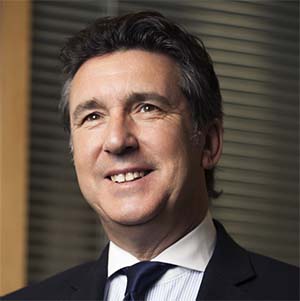Accountants need to adapt to a new reality, one where technology is a dominant feature of our financial systems, capital markets, and organisational processes.
 So says Anton Colella, who recently took the helm as CEO of Moore Stephens. He notes that, while it’s understandable to imagine that the evolution of automated processes will remove some of the responsibilities that traditionally fall to accountants, the opposite is in fact true.
So says Anton Colella, who recently took the helm as CEO of Moore Stephens. He notes that, while it’s understandable to imagine that the evolution of automated processes will remove some of the responsibilities that traditionally fall to accountants, the opposite is in fact true.
“Faced with massive changes, society will naturally have questions about trust and truth. We’ll be searching for certainties in an uncertain, unfamiliar world, and accountants are well placed to fill this role.”
This is because accountants are often seen as guardians of ethics and values; this, plus their natural tendency to question and find answers, means that they have sound tools to help navigate the new reality.
Colella says that it’s inevitable that Artificial Intelligence will take on an increasing presence in our lives – but that doesn’t mean human interaction will become obsolete. In fact, while the efficiency and accuracy of the former is certainly to be desired, there is no substitute for the latter. “People still want to turn to other people for counsel and advice. They will always want the wisdom and insight that only another human being can provide.”
Of course, even against this backdrop, the accountant’s role will necessarily develop into something new. As Colella observes, “our job will now go beyond scrutinising and auditing companies. Fortunately, the accountant’s innate scepticism serves us well for our new tasks,” he continues.
But if the accountant’s role is, essentially, to protect society and ensure the compliance of the companies and corporates that were established to serve us, who will protect the accounting profession itself? This is a key question, as Colella points out that in their rush to meet the technological requirements of the day, many firms are making an enormous investment in software in an effort to differentiate themselves and provide better service.
This ultimately works against them, however – as with any technology, it is often only a matter of months before the next generation of equipment is released.
“As such, the question facing firms is this: How do we invest in a way that helps us keep pace with the world’s changes, yet doesn’t become outdated?”
Firms also have to find a way to answer companies’ demand for accounting as an ongoing, real-time look at their business, rather than a once-off checkpoint as part of an annual audit.
Not all firms will survive these changes, Colella admits. Those that do will be the ones which have found a new way to function in a new world. It may also help for the industry to implement new standards to govern auditing processes, so that the profession remains relevant in our transforming world.
“Some standards need to look at the softer side of businesses; others need to guide how we manage risk. In all cases, however, it is crucial that these standards are developed. We have seen the social, economic and political fallouts that take place when major listed corporates fail us, and we need to prepare a defence against this; one which takes into account the new context in which we operate,” Colella concludes.
